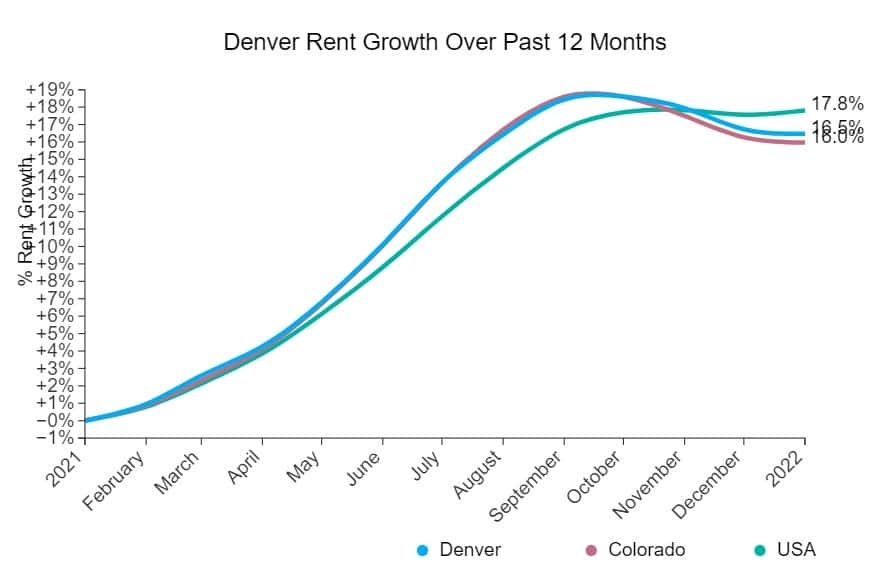DENVER (KDVR) – Denver metro rents are rising month after month, but they remain lower than the same time last year.

The Denver-Aurora-Lakewood metro area is one of the most costly rental markets in the United States. According to a June Realtor.com survey, the median rent for apartments, which include studios, one-bedrooms, and two-bedrooms, is $1,984. In terms of rental costs, it is placed between Seattle and Sacramento.
Denver Metro’s rent has decreased by 2.9% since last summer, making it one of the cities where rent has decreased the most recently.
Rents in western towns such as in Denver Metro have fallen the highest in the last year, down 3.8% altogether. Renters used to flock to these places, but as prices rose starting in 2021, more are now choosing the less expensive Midwest cities. Rents in Milwaukee, Oklahoma City, and Cleveland have increased the most in the last year, indicating increased demand.
Starting August 7, renters in the Denver Metro or the state of Colorado will have a few extra levels of security.
This is due to the implementation of two pieces of legislation passed during the 2023 legislative session.
These include SB23-184, Protections for Rental Tenants, and HB23-1095, Prohibited Provisions in Rental Agreements. Both laws were approved in April and made official in June.
Income requirements capped at 200% of rent
With a few exceptions, prospective tenants will not be compelled to pay more than 200% of annual rent under SB23-184.
Furthermore, landlords in the Denver metro will be prohibited from using income information except to verify that the renter earns more than 200% of the annual rent.
A landlord in Denver Metro will also be unable to use a credit score, lack a credit score, or other bad credit events such as late payments unless allowed by federal law.
However, if they do, they will be unable to evaluate any information older than seven years. This seven-year period will also apply to a potential tenant’s renting history. However, this was already part of the law when the bill was passed.
Any landlord that disobeys these new application requirements will have to pay $50 to the incoming tenant and, if they don’t settle the issue, are subject to an additional penalty of $2,500 to, again, be paid to the future tenant.
Also with the new law, tenants won’t be required to give a security deposit that is more than two months’ rent.
Prohibited items in rental agreements in the Denver metro
HB23-1095, as expected, identifies a few new items that are not permitted to be included in rental agreements.
Things that will soon be forbidden include:
- A rental agreement imposes fines, damages, or a penalty if a tenant fails to deliver notice of nonrenewal prior to the lease’s expiration date.
- An agreement that defines any fees other than the standard monthly rent as “rent” that can be collected through legal means such as eviction.
- Any condition requiring renters to pay fees or markups in excess of what a landlord paid for a third-party service.
Certain rental agreements in the Denver metro, such as those in mobile homes or mobile home parks, are exempt from the new rule.




